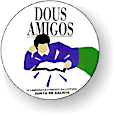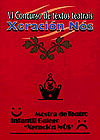| Cultural production Galician has found itself a place in various areas of cultural life over recent decades. The publication of books in Galician has increased gradually since 1983; these publications are not limited to the field of literary creation but cover all areas (historiography, teaching, economics, sociolinguistics, etc.); the number of Galician publishers has increased (Galaxia, Xerais, Sotelo Blanco, Ir Indo, Edicións do Castro, Vía Láctea, Edicións do Cumio, Fontel, Bahía, etc.) as well as that of publishers which, though national, compete in the Galician market with their own collections and/or translate works in various languages to Galician. The creation of literary awards and competitions enriches publishing in Galician. The local administration has established literary awards such as the "Cidade de Lugo"and the "Celso Emilio Ferreiro" of the Vigo Town Council, the "Eduardo Blanco Amor" for long novels which is promoted by a number of town councils from all over Galicia, and the "Ricardo Carvalho Calero" for short stories of the Ferrol Town Council. The publishing houses too hold contests: the "Xerais" for novels, the "Merlín" for children's books and others; also the "Ramón Cabanillas" and the "Alvaro Cunqueiro" for playwriting, the "De catro a catro" for short stories, and the "Losada Diéguez". This year the "Iacobeus" Award, of international scope and with a generous prize, has been presented to the public: the winning works will be translated to various European languages, thus gaining special prestige. Drama is the sector of cultural production where greatest progress towards normalization has been made: 99% of theatrical activity is in Galician. In 1986 the "Centro Dramático Galego" was created receiving public funds and became the strongest theatrical company in Galicia. Three years later the Centro Galego das Artes Escénicas e Musicais (IGAEM) was born as a center of resources for both public and private companies. A number of theatrical festivals, shows and contests are held in Galicia, such as the "Mostra de Teatro Infantil Xeración Nós", in the Mancomunidade de Ferrol, the "Festival Internacional de Teatro" in Ribadavia, the "Mostra de Teatro Cómico-Festivo" in Cangas, etc.  Cinema and video production in Galicia is growing up slowly. Films "Sempre Xonxa", "Continental" and "Urxa" as well as several short films and videos have been followed by new productions (A metade da vida, Dame Lume, Dame Algo...) and even foreinger films have been dubbed (O pico das viuvas, A lei da fronteira...) Cinema and video production in Galicia is growing up slowly. Films "Sempre Xonxa", "Continental" and "Urxa" as well as several short films and videos have been followed by new productions (A metade da vida, Dame Lume, Dame Algo...) and even foreinger films have been dubbed (O pico das viuvas, A lei da fronteira...)The sector of Galician music is beginning to recover slowly after a period of certain effervescence at the end of the sixties and beginning of the seventies. Milladoiro is probably the group which has achieved the greatest fame both in Galicia and abroad. In spite of the competition from multinational record-producers which promote English language music almost exclusively, in Galicia we have at present groups and singers with very different styles but with a wide following (Xocaloma, A Quenlla, María Manuel e Miguel, Suso Vaamonde, Ana Kiro, Xoán Rubia, Uxía, Na Lua, Muxicas...) as well as important new names (Carlos Núñez, Koros i Dansas, Matto Congrio, Luar na Lubre, etc.) who are working for Galician music and in Galician. One of the most original movements is the so-called "Rock Bravú" (Os Diplomáticos, Os Túzaros, Papaqueixos, Skornaboys, Heredeiros da Crus, etc.) bands singing in Galician and talking about the Galician reality, both rural and urban. |
 Milladoiro is the group which has achieved the greatest fame.  The publication of books in Galician has increased gradually since 1983.  Two friends. In order to increase the number of readers in Galician language campaigns of reading awakening are fostered.  Drama is the sector of cultural production where greatest progress towards normalization has been made. |
Back to Comunication media and cultural producttion